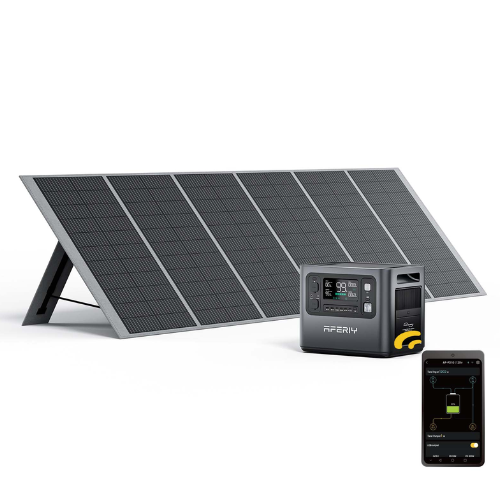
What is a Solar Generator?
A solar generators is a device that captures energy from the sun through solar panels and stores it in a built-in battery for later use. Unlike fuel-based generators that rely on gasoline or diesel, these units operate silently and produce zero emissions. They typically include three main components: solar panels to collect energy, a battery bank to store power, and an inverter to convert stored electricity into usable current for appliances and devices.
Depending on their size and capacity, solar power generators can supply energy for small electronics like smartphones and laptops or even larger appliances such as refrigerators, televisions, and portable air conditioners. Their flexibility and clean operation make them appealing for both off-grid living and emergency preparedness.
Benefits of Solar Generators
The advantages of investing in solar generators extend well beyond environmental impact. For homeowners, these systems provide a reliable backup during power outages, ensuring essential devices remain operational. Unlike fuel-powered units, there is no need to store flammable liquids or worry about noise levels disturbing neighbors.
For travelers, campers, and RV owners, solar generators provide a dependable source of electricity in remote areas. They offer freedom from traditional power grids, making it possible to cook, light spaces, and run entertainment systems without sacrificing comfort. In addition, their low maintenance requirements—compared to combustion-based generators—reduce long-term costs and effort.
From a sustainability perspective, solar generators align with global efforts to reduce carbon emissions. Since they draw energy directly from the sun, they promote clean energy adoption and decrease reliance on nonrenewable fuels.
Solar Generators vs. Traditional Generators
When comparing solar-powered generators with conventional gasoline or propane models, the differences are clear. While traditional units often provide higher wattage outputs for heavy-duty applications, they come with significant trade-offs such as loud operation, harmful emissions, and ongoing fuel expenses. Solar generators, by contrast, prioritize portability, quiet use, and environmental responsibility.
Although initial investment costs for solar options can be higher, they eliminate the recurring expense of fuel and require minimal upkeep. This long-term value makes them particularly attractive to eco-conscious consumers and those living in regions with consistent sunlight.
Popular Uses of Solar Generators
The versatility of solar power generators has contributed to their growing popularity across diverse lifestyles. In residential settings, they serve as a safeguard against blackouts, keeping lights, medical equipment, and communication devices powered. For outdoor adventurers, solar generators provide essential electricity for cooking, charging, and entertainment during extended trips.
In professional environments, contractors and event organizers use them for mobile setups where quiet, clean energy is preferred. They also play a vital role in humanitarian aid, offering emergency relief in disaster-stricken areas where access to traditional power is limited.
Factors to Consider When Choosing a Solar Generator
Selecting the right solar generator involves evaluating power capacity, battery type, charging speed, and portability. Larger models with higher watt-hour ratings can support heavy appliances, while compact units are better suited for lightweight travel. Lithium-ion batteries dominate the market due to their efficiency and durability, although some units employ lithium iron phosphate cells for longer lifespan and safety.
Solar input capacity is another key consideration, as faster charging panels reduce downtime between uses. Portability features such as ergonomic handles and compact designs also matter for users who frequently travel or move their unit between locations.
Maintenance and Longevity
Maintaining a solar power generator is relatively straightforward compared to fuel-based alternatives. The absence of moving parts reduces wear and tear, while modern lithium batteries are designed for thousands of charging cycles. Occasional cleaning of solar panels, proper storage when not in use, and monitoring battery health ensure long-term reliability. With consistent care, many solar generators can last for a decade or more, offering substantial returns on investment.
The Future of Solar Energy Solutions
The future of solar generators looks promising as technology continues to advance. Improvements in panel efficiency, faster charging capabilities, and integration with smart devices are making these systems more user-friendly and effective. The rise of renewable energy adoption, combined with growing concerns over climate change, ensures that solar-powered generators will remain a vital part of the clean energy landscape.
As battery technology evolves, capacities will increase while prices continue to fall, making solar energy solutions more accessible to households and businesses worldwide. The shift toward sustainable power systems signals not just a trend but a long-term transformation in how humanity approaches electricity.
Conclusion
Solar generators represent more than just a convenient power solution; they embody a shift toward sustainable, renewable energy that benefits both individuals and the planet. Offering quiet operation, portability, and zero emissions, they have quickly become a preferred choice for households, adventurers, and professionals alike. While traditional generators still have their place in high-demand situations, solar-powered options are setting new standards for clean, reliable, and versatile energy. For anyone seeking independence from fossil fuels while maintaining access to essential electricity, investing in a solar generator is a forward-thinking decision that ensures both preparedness and peace of mind.